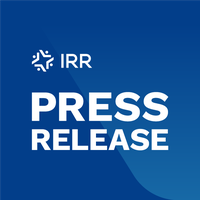
The Institute of Race Relations is taking legal advice on the constitutionality of the decision by Finance Minister Enoch Godongwana to exempt Eskom from its duty to report fruitless, wasteful, and irregular expenditure going into 2025.
On 31 March Minister Godongwana exempted Eskom from “[d]isclosure of any irregular expenditure and fruitless and wasteful expenditure that occurred during the financial years in the annual report” for three financial years, starting retrospectively in 2022 and ending in 2025 in terms of powers granted by the Public Finance Management Act (PFMA).
This is alarming to commonsense, but is it constitutional?
According to the State Capture Report, “the PFMA grants National Treasury…functions and powers of oversight, which also apply to public procurement and which can be viewed as fulfilling the mandate given in section 216(1) of the Constitution”.
That section states that “National legislation must establish a national Treasury and prescribe measures to ensure both transparency and expenditure control in each sphere of government, by introducing – (a) generally recognized accounting practice; (b) uniform expenditure classifications; and (c) uniform Treasury norms and standards [emphasis added].”
Significantly the State Capture Report notes that according to the PFMA accounting functions at Eskom “must be fulfilled in terms of the framework created by the National Treasury and under its supervision [emphasis added]”.
Section 216(2) of the Constitution states unambiguously: “The national Treasury must enforce compliance with the measures established in terms of subsection (1).”
This appears to be a black-and-white constitutional requirement that Treasury cannot shirk its duty to supervise irregular, fruitless, and wasteful expenditure at Eskom, or its duty to enforce compliance with generally recognised accounting practice for three years.
In addition section 217(1) of the Constitution requires “cost-effective” and “transparent” procurement when organs of state like Eskom purchase goods and services. This is explicitly a “must”.
The IRR legal team is already well versed in a contrasting example, where Minister Godongwana clearly has the power to grant exemptions, namely from racial considerations in procurement at Eskom.
The State Capture Report observed “negative repercussions” in failing to resolve the “inevitable tension” between “value-for-money” and racial preferencing. There were “negative repercussions when this delicate and complex choice has to be made, by default, by the procuring official. Ultimately…the primary national interest is best served when the government derives the maximum value-for-money in the procurement process and procurement officials should be so advised.”
As such the IRR wrote repeatedly, since February 2022, to Minister Godongwana to alert him to the Report’s advice and to urge him to use the exemption powers the Treasury Minister has under the Preferential Procurement Policy Framework Act (PPPFA). The Minister is empowered to exempt Eskom from all the provisions of the PPPFA if “it is in the public interest”. The State Capture Report shows that such exemption is in the public interest.
Said Gabriel Crouse: “We made the call that when the Eskom State of Disaster was declared this signalled a worrying turn from the State Capture recommendations for transparency and towards more State Capture. Now the South African public has been officially blinded to corruption at Eskom for years.
“We expect the following argument to be used to block transparency, namely that if the PFMA exemption from Treasury supervision is unconstitutional then so is the PPPFA exemption from red tape race law. However, a plain English reading of the Constitution does not support that false conflation. We are taking legal advice on what this entails.”
Media contacts: Gabriel Crouse, IRR Head of Campaigns – 082 510 0360; gabriel@irr.org.za
Mlondi Mdluli, IRR Campaign Manager- 071 148 2971; mlondi@irr.org.za
Media enquiries: Michael Morris Tel: 066 302 1968 Email: michael@irr.org.za
Sinalo Thuku, 073 932 8506 Email: sinalo@irr.org.za
 LETTER | Rethinking BEE premiums could unlock billions for growth - Business Day
Feb 19, 2026
LETTER | Rethinking BEE premiums could unlock billions for growth - Business Day
Feb 19, 2026
 IRR’s 2026 Budget tips for Minister Godongwana
Feb 19, 2026
IRR’s 2026 Budget tips for Minister Godongwana
Feb 19, 2026
 Corruption-busting must begin with next week’s Budget – IRR
Feb 18, 2026
Corruption-busting must begin with next week’s Budget – IRR
Feb 18, 2026
 Hold Ramaphosa to account for his SONA admissions of failure, IRR urges MPs
Feb 17, 2026
Hold Ramaphosa to account for his SONA admissions of failure, IRR urges MPs
Feb 17, 2026
 Corrigan pt. II: FMD crisis — How did we get to this point? - Biznews
Feb 16, 2026
Corrigan pt. II: FMD crisis — How did we get to this point? - Biznews
Feb 16, 2026

 LETTER | Rethinking BEE premiums could unlock billions for growth - Business Day
Feb 19, 2026
LETTER | Rethinking BEE premiums could unlock billions for growth - Business Day
Feb 19, 2026
 IRR’s 2026 Budget tips for Minister Godongwana
Feb 19, 2026
IRR’s 2026 Budget tips for Minister Godongwana
Feb 19, 2026
 Corruption-busting must begin with next week’s Budget – IRR
Feb 18, 2026
Corruption-busting must begin with next week’s Budget – IRR
Feb 18, 2026
 Hold Ramaphosa to account for his SONA admissions of failure, IRR urges MPs
Feb 17, 2026
Hold Ramaphosa to account for his SONA admissions of failure, IRR urges MPs
Feb 17, 2026
 Corrigan pt. II: FMD crisis — How did we get to this point? - Biznews
Feb 16, 2026
Corrigan pt. II: FMD crisis — How did we get to this point? - Biznews
Feb 16, 2026